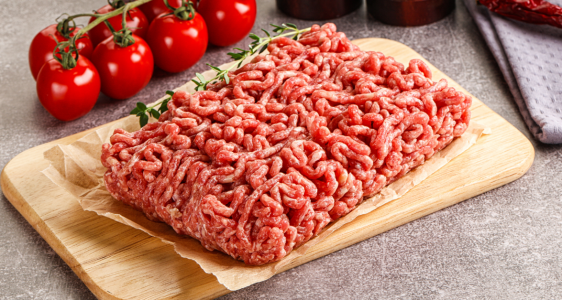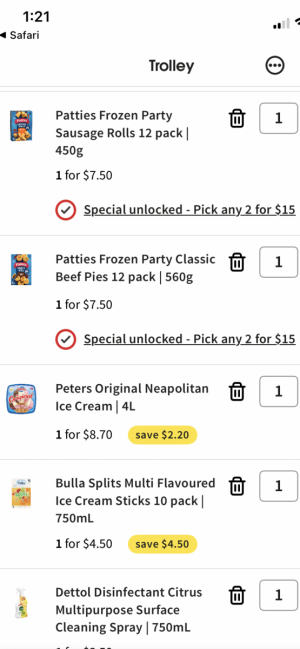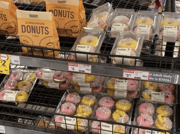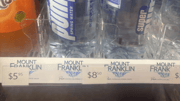Supermarket faces outrage over insufficient markdown on expiring product
By
Gian T
- Replies 18
Amid a cost-of-living crisis squeezing household budgets across the nation, Australian shoppers are scrutinising every cent spent at the supermarket checkout.
It's no surprise that a recent incident involving a Coles customer has sparked a heated debate about the value of supermarket discounts, particularly when it comes to items nearing their best-before dates.
A Coles shopper recently took to social media to express their dismay over what they deemed an 'insulting' markdown on a packet of mince.
The product, a day away from its best-before date, had been reduced by a mere 33 cents from its original price of $6.50.
The photo of the paltry discount quickly drew the ire of Australians, who are increasingly frustrated with major supermarkets' pricing tactics.
This incident comes when Coles and Woolworths are under the microscope for their discounting practices.
The Australian Competition and Consumer Commission (ACCC) has accused the grocery giants of misleading consumers with promotions that inflate prices before applying discounts, creating the illusion of savings where there may be none.
The backlash against Coles' mince markdown is emblematic of a broader discontent with supermarket pricing strategies.
Many consumers argue that such negligible discounts on products close to expiration fail to offer real value and contribute to significant food waste, as items are often discarded rather than sold at a more reasonable markdown.
Comments from disgruntled shoppers highlight the sentiment:
'Even the markdown prices are insulting these days,' and 'The discounts these days tell me that they would rather chuck it all in the bin than offer up a real bargain.'
Another added, 'And then they dare to ask us for charitable donations to feed the hungry.'
New research from the Australia Institute’s Centre for Future Work has revealed that supermarkets are largely to blame for the country's rising cost of living.
In a recent poll, 83 per cent of respondents said supermarkets deserve 'some blame or a great deal of blame.'
This anger toward supermarkets surpasses the frustration directed at energy companies, banks, and the government.
According to six out of 10 people, grocery prices are the most notable sign of increased cost-of-living pressures.
This is a significant concern for Australians, especially those over 60 who often manage on fixed incomes and are particularly vulnerable to price hikes in essential goods.
In response to these concerns, the Albanese government has expedited its supermarket crackdown, establishing a mandatory grocery code that would impose multimillion-dollar penalties for businesses that breach the rules.
The ACCC has initiated legal action against Coles and Woolworths for allegedly hiking prices on over 500 items before promoting misleading discounts.
An interim report from the ACCC's supermarket inquiry found that prices have risen across all grocery product types, with the steepest increases in dairy products, bread, and cereal items.
Meat and seafood prices have risen by a fifth, while fruit and vegetable costs have gone up by 19 per cent from the March 2019 quarter to the June 2024 quarter.
 What do you think about supermarket prices for near-expiry products? What changes would you suggest for better discounts? Let us know in the comments below.
What do you think about supermarket prices for near-expiry products? What changes would you suggest for better discounts? Let us know in the comments below.
It's no surprise that a recent incident involving a Coles customer has sparked a heated debate about the value of supermarket discounts, particularly when it comes to items nearing their best-before dates.
A Coles shopper recently took to social media to express their dismay over what they deemed an 'insulting' markdown on a packet of mince.
The product, a day away from its best-before date, had been reduced by a mere 33 cents from its original price of $6.50.
The photo of the paltry discount quickly drew the ire of Australians, who are increasingly frustrated with major supermarkets' pricing tactics.
This incident comes when Coles and Woolworths are under the microscope for their discounting practices.
The Australian Competition and Consumer Commission (ACCC) has accused the grocery giants of misleading consumers with promotions that inflate prices before applying discounts, creating the illusion of savings where there may be none.
The backlash against Coles' mince markdown is emblematic of a broader discontent with supermarket pricing strategies.
Many consumers argue that such negligible discounts on products close to expiration fail to offer real value and contribute to significant food waste, as items are often discarded rather than sold at a more reasonable markdown.
Comments from disgruntled shoppers highlight the sentiment:
'Even the markdown prices are insulting these days,' and 'The discounts these days tell me that they would rather chuck it all in the bin than offer up a real bargain.'
Another added, 'And then they dare to ask us for charitable donations to feed the hungry.'
New research from the Australia Institute’s Centre for Future Work has revealed that supermarkets are largely to blame for the country's rising cost of living.
In a recent poll, 83 per cent of respondents said supermarkets deserve 'some blame or a great deal of blame.'
This anger toward supermarkets surpasses the frustration directed at energy companies, banks, and the government.
According to six out of 10 people, grocery prices are the most notable sign of increased cost-of-living pressures.
This is a significant concern for Australians, especially those over 60 who often manage on fixed incomes and are particularly vulnerable to price hikes in essential goods.
In response to these concerns, the Albanese government has expedited its supermarket crackdown, establishing a mandatory grocery code that would impose multimillion-dollar penalties for businesses that breach the rules.
The ACCC has initiated legal action against Coles and Woolworths for allegedly hiking prices on over 500 items before promoting misleading discounts.
An interim report from the ACCC's supermarket inquiry found that prices have risen across all grocery product types, with the steepest increases in dairy products, bread, and cereal items.
Meat and seafood prices have risen by a fifth, while fruit and vegetable costs have gone up by 19 per cent from the March 2019 quarter to the June 2024 quarter.
Key Takeaways
- Coles has been criticised for offering a small discount on meat close to its best-before date, which consumers find insubstantial and insulting.
- The ACCC has accused Coles and Woolworths of misleading customers with deceptive discount practices.
- Consumers blame supermarkets for a significant part of the rising cost of living, with new research highlighting extensive public frustration.
- The government is fast-tracking a supermarket crackdown, including a mandatory grocery code, amid legal action regarding price hikes and misleading discount promotions.









